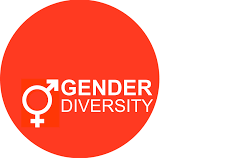How can recruiters help you build a more gender diverse legal team?

Gender diversity? Everyone has an opinion on it – it’s importance and why; how diverse their own team is; whether their company has got the policies right.
Diversity in the legal profession has been a hot topic, and in comparison to other industries, slow to change. The logistics and structures of large international law firms has been blamed for this in the past but is no longer an acceptable excuse. There is a huge disparity in diversity between in-house legal teams versus private practice and there are several reasons for this. The main one being the long hours culture of private practice. Until this is addressed across the board we can question whether a truly diverse work force can ever be achieved.
As well as tradition, old fashioned stubbornness and ignorance, there are other more nuanced and deep-rooted reasons why diversity in the law is so difficult to achieve. Only when diversity is addressed from the outset, during education and training contracts, can we get balanced teams in law firms and then be able to offer a truly diverse shortlist to our in-house clients. As well as looking at how partners run their firms and treat their staff, we also need to look at how the clients treat external counsel. Will a male client usually give their work to a male partner? Do in-house lawyers’ expectations vary depending on who they instruct? Personal and homelife is still the main reason for women not being at the top of the profession despite women’s networks, mentoring and other incentives being put in place. The tone must change from the top and filter through all departments, including internal and external recruiters. We need to re-think initiatives that may have previously created silos to create gender balanced teams.
As 2 female directors at Fry & Brown, this is a subject close to our hearts. We both worked at large and medium sized businesses before setting up on our own small company and we have both experienced the gender imbalance. As recruiters, we were very much on an even keel with our male counterparts but when it came to career progression it was clear that sacrifices would need to be made, to satisfy our direct reports, peers, bosses and shareholders.
So we are often thinking about what we can do to help our clients create well balanced teams, as well as how we can help those who are ambitious to achieve and overcome the obstacles. These are some of the things we do to encourage diversity:
- We ask the right questions of our clients at the outset, providing more information than most and gathering clear prospects, promotion and compensation criteria.
- We use correct terminology in our adverts. Missing out anything that may be gender specific but including possibilities of flexible and agile working.
- We source candidates using six different methods, ensuring our database is as diverse as possible.
- We empower candidates to go for something that they might not normally go for, but their counterpart with the same experience might.
- We encourage applicants to go for roles that don’t advertise flexibility and will ask questions on their behalf.
- We ask clients to take part time, flexible and agile working requests seriously and provide personalised, practical suggestions.
- We get clients to consider candidates who are changing careers or have taken time out.
- We educate clients on how it can work and give examples from within other teams and organisations. With nearly 20 years’ experience each we have plenty of great examples up our sleeves.
- We request and share flexible working and equal opportunity policies.
- We get to know our clients and engage in dialogue around diversity – their views are as important as their actions and the attitude of the boss tells you so much more than company policies. Those with less sophisticated official policies sometimes have great ideas and can be more flexible to make things work for the individual.
- We get to know your business meaning we can identify role models in the organisation and highlight them to talent you want to attract.
- We stay in touch with people we have placed putting potential employees in touch with them, to hear their experience of how diversity works in practice.
- We will share success stories as part of our company sell – part timers who have been promoted; women in management positions; companies who have adapted to employees needs rather than vice versa etc.
- When appropriate, we support using blind CVs to avoid any kind of discrimination.
- Our hosted events are at different times to suit different people. Not just drinks in evening but targeted breakfast seminars, lunches, webinars and group video calls at different times of the day to make accessible to all.
- We are regularly looking at our statistics, setting targets, measuring progress and taking accountability, assessing how we can do better.
- We commit to calling out any bias and bullying that becomes evident during a hiring process. Often this can be non-conscious and easily resolved, but we would be prepared to lose clients in any case where it can’t be resolved.
We don’t deny that it can sometimes be difficult to get right and we’d be keen to hear any further suggestions on how we can improve.
May 2020
